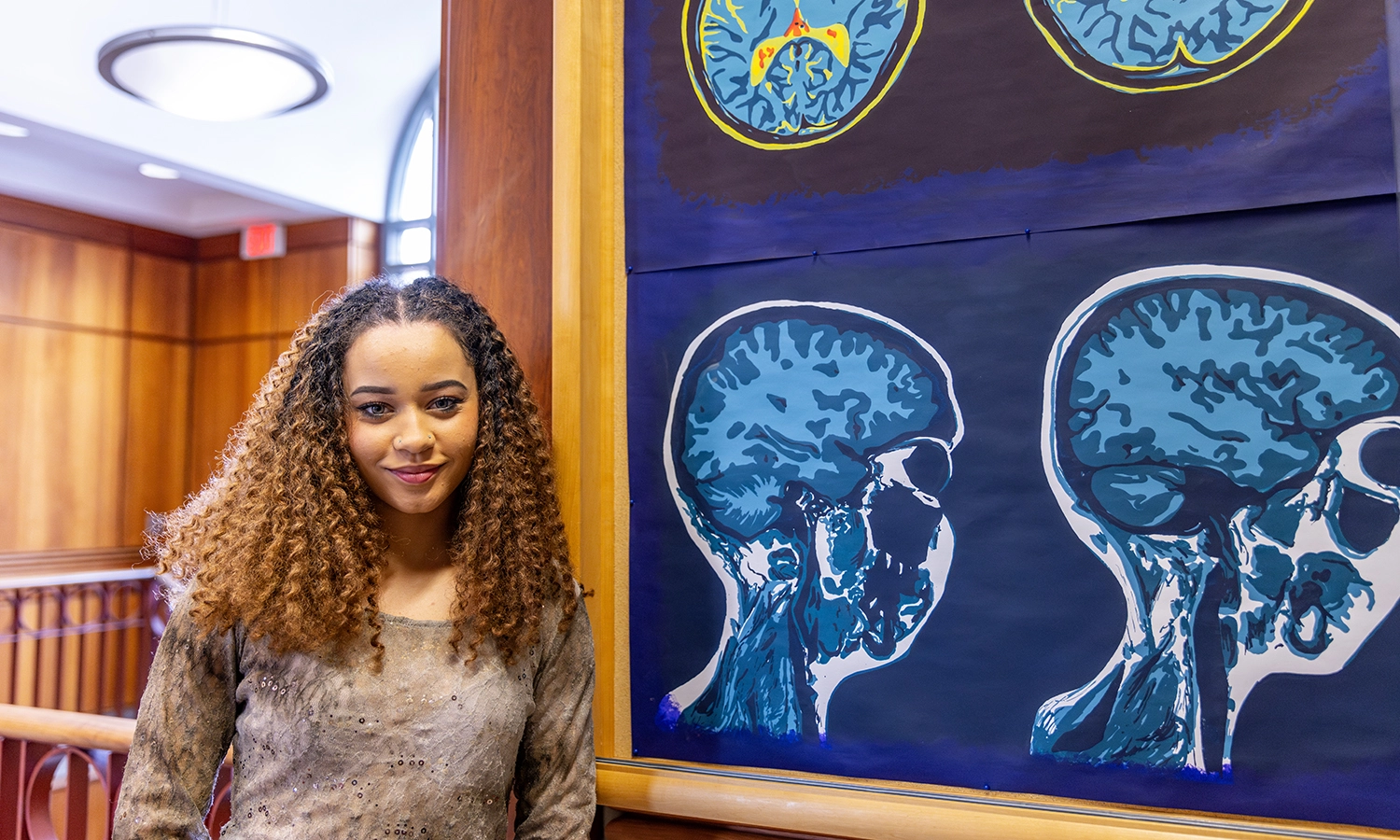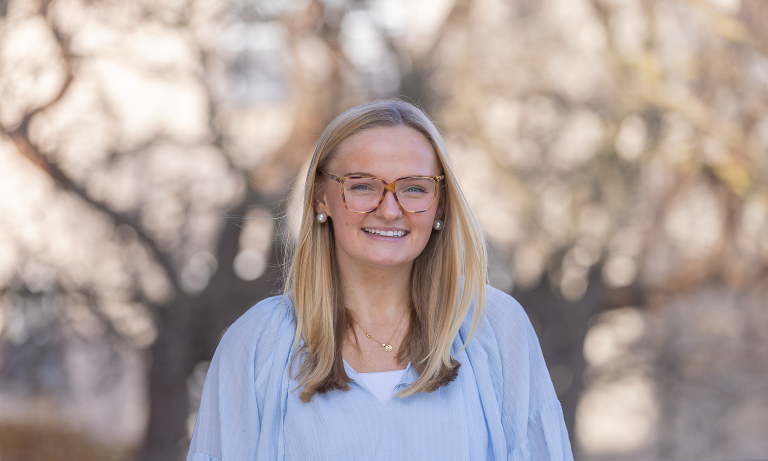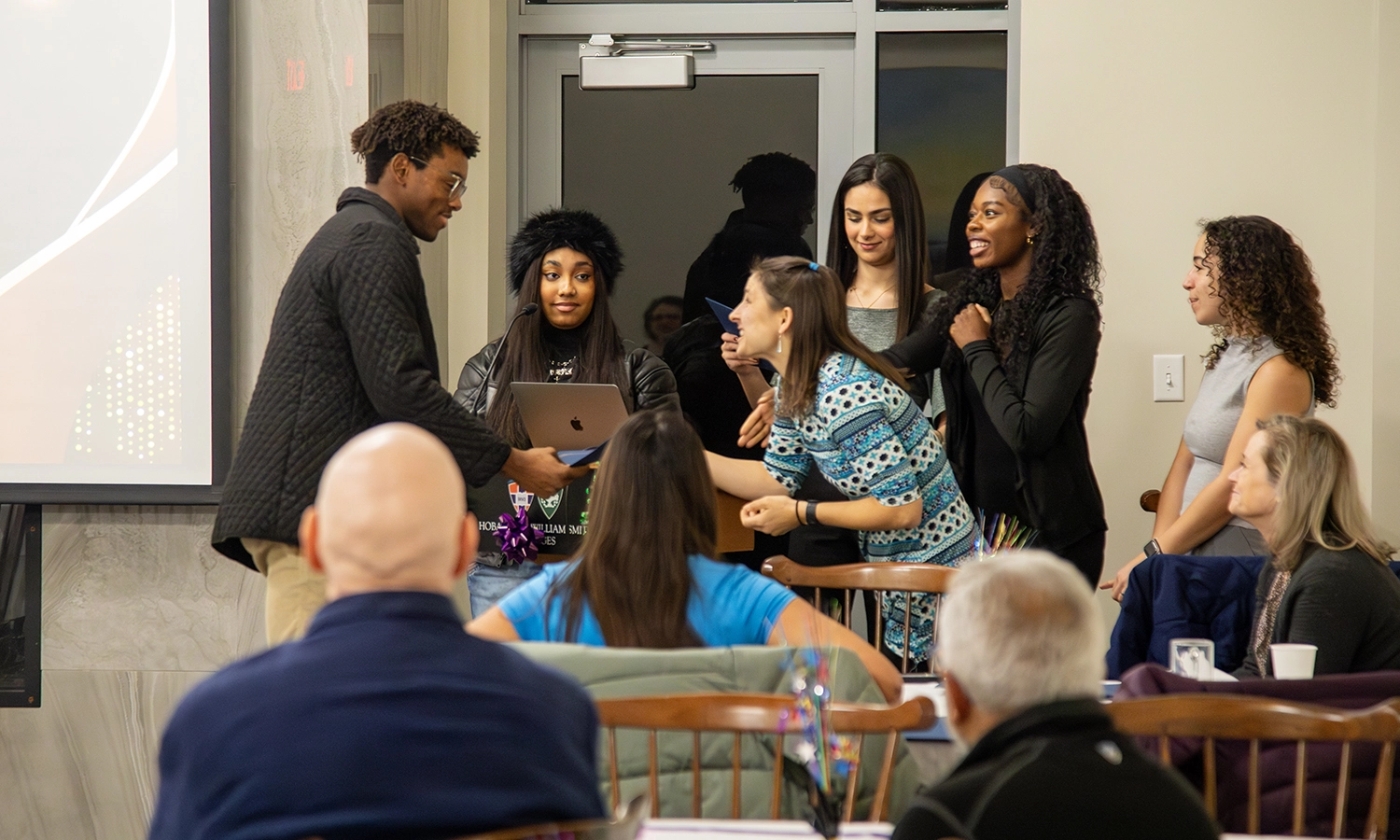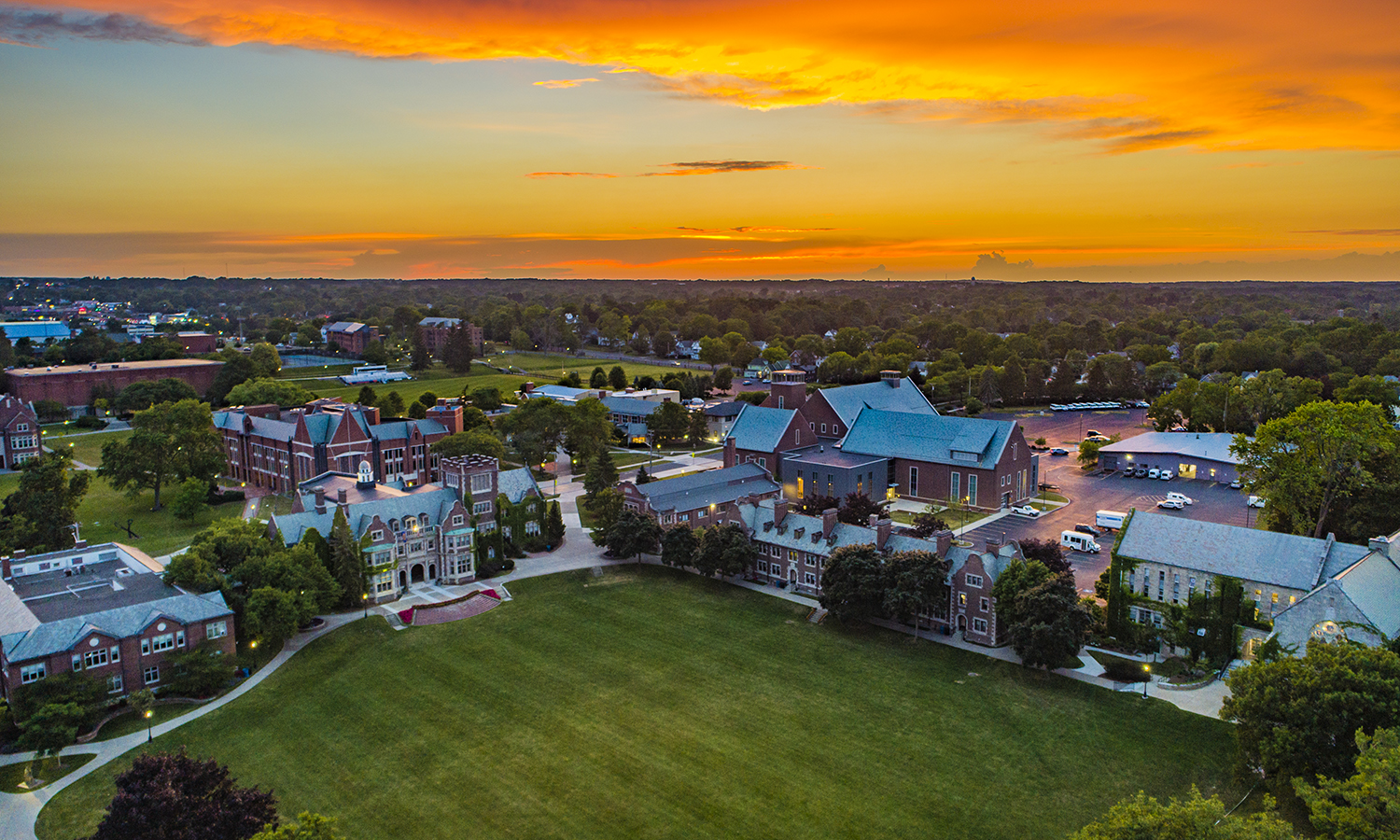
HWS News
1 August 2023 • Alums • STEM Secure Intel
Cryptology expert and Navy veteran KATHRYN LAMARDO ’13 reflects on national security in the information age.
Kathryn Lamardo ’13 spent five years as a cryptologic warfare officer in the U.S. Navy, specializing in moving intelligence swiftly, securely and properly through the chain of command from locations across the globe. Supporting freedom
of navigation and strategic international partnerships, Lamardo’s service took her from Maryland to the South China Sea to the Persian Gulf, managing the flow of vital foreign intelligence while simultaneously safeguarding U.S. operational information from bad actors.
After she joined the Navy and completed officer candidate school in 2018, Lamardo’s first permanent duty station was at the National Security Agency in Maryland. Her experience there on the cyber watch floor supervising cyber operations prepared her for a seven-month deployment aboard the
USS Essex.
A chemistry major with minors in economics and dance, Lamardo completed her U.S. Navy service in December 2022. As she prepares to start an M.B.A. program at Columbia Business School, she is currently interning with a financial firm to explore the different opportunities in the private sector but can’t rule out a return to public service in the future. 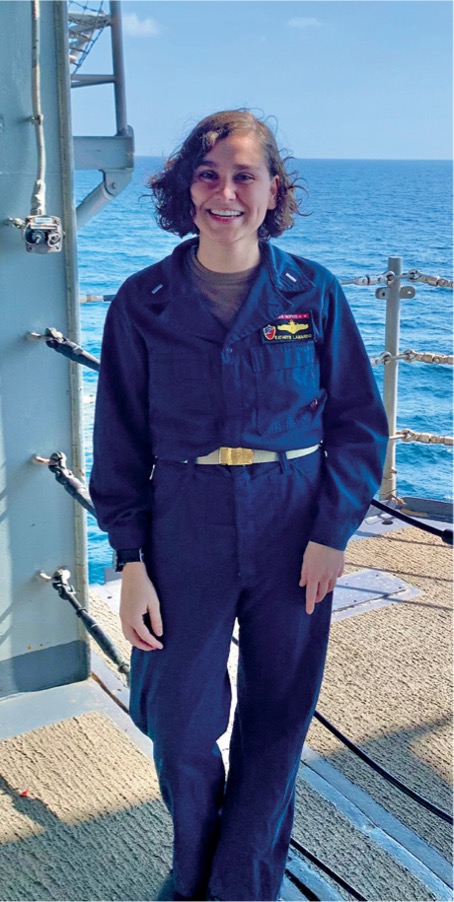
Deployed to the Middle East and the West Pacific, Lamardo was responsible for the ship’s special security program, maintaining 175 top secret security clearance profiles on Navy and Marine Corps servicemembers to retain readiness of the force throughout the deployment. She also managed the ship’s operational security program, and this was no small task considering the ease and speed at which technology connects the world; it was Lamardo’s job to ensure information did not fall into the wrong hands.
“If acquired by malicious actors,” she explains, “classified and sensitive information could jeopardize the lives of service members and result in exceptionally grave damage to national security. However, the practice of safeguarding this information must be properly balanced with effective information sharing among the intelligence community. My daily work in the Navy revolved around ensuring that these practices were executed effectively for the sake of national defense.”
Aboard the USS Essex, Lamardo managed 11 sailors
while producing hundreds of intelligence reports and executing real-world information operations. When the
ship performed combined exercises with the Navy, the Marine Corps and the Japan Maritime Self-Defense Force
in the Philippine Sea, Lamardo stood Information Warfare Commander watch, leading exercises in counter-intelligence, counter-surveillance and counter-reconnaissance tactics with other participating ships.
“If acquired by malicious actors, classified and sensitive information could jeopardize the lives of service members and result in exceptionally grave damage to national security.”
Her deployment also included movements through the Strait of Hormuz, a contentious area in the Persian Gulf bordering Iran and Oman. These transits were not only necessary for their operational tasking but to ensure both safety and freedom of navigation in international waters. Lamardo’s signals intelligence team directly supported these operations by providing indications and warnings of immediate threats to the ship.
“It was clear to me that every single individual on the
ship was working toward a greater goal,” says Lamardo. “We could not achieve anything without all of the pieces working together. Everyone, regardless of rank or department, played a key role in the success of the ship’s missions.”
She says the multi-dimensional education at HWS broadened her view of the world and developed communication and leadership skills that have served her well in the military. “My diverse class experiences at HWS, the discussions, the people and the courses prepared me to lead such a diverse group of people,” she says.
Public service has always been a passion for Lamardo, with her father serving in law enforcement and extended family
in the military. After graduation, she worked for a private chemistry company and then spent almost three years as a criminalist for the New York City Police Department. Her time in the Navy allowed her to combine tactical expertise to work with service.
As she says, “being a member of that problem-solving team [of naval officers and sailors] was deeply gratifying.”
This story originally featured in the Summer 2023 edition of the Pulteney Street Survey.

